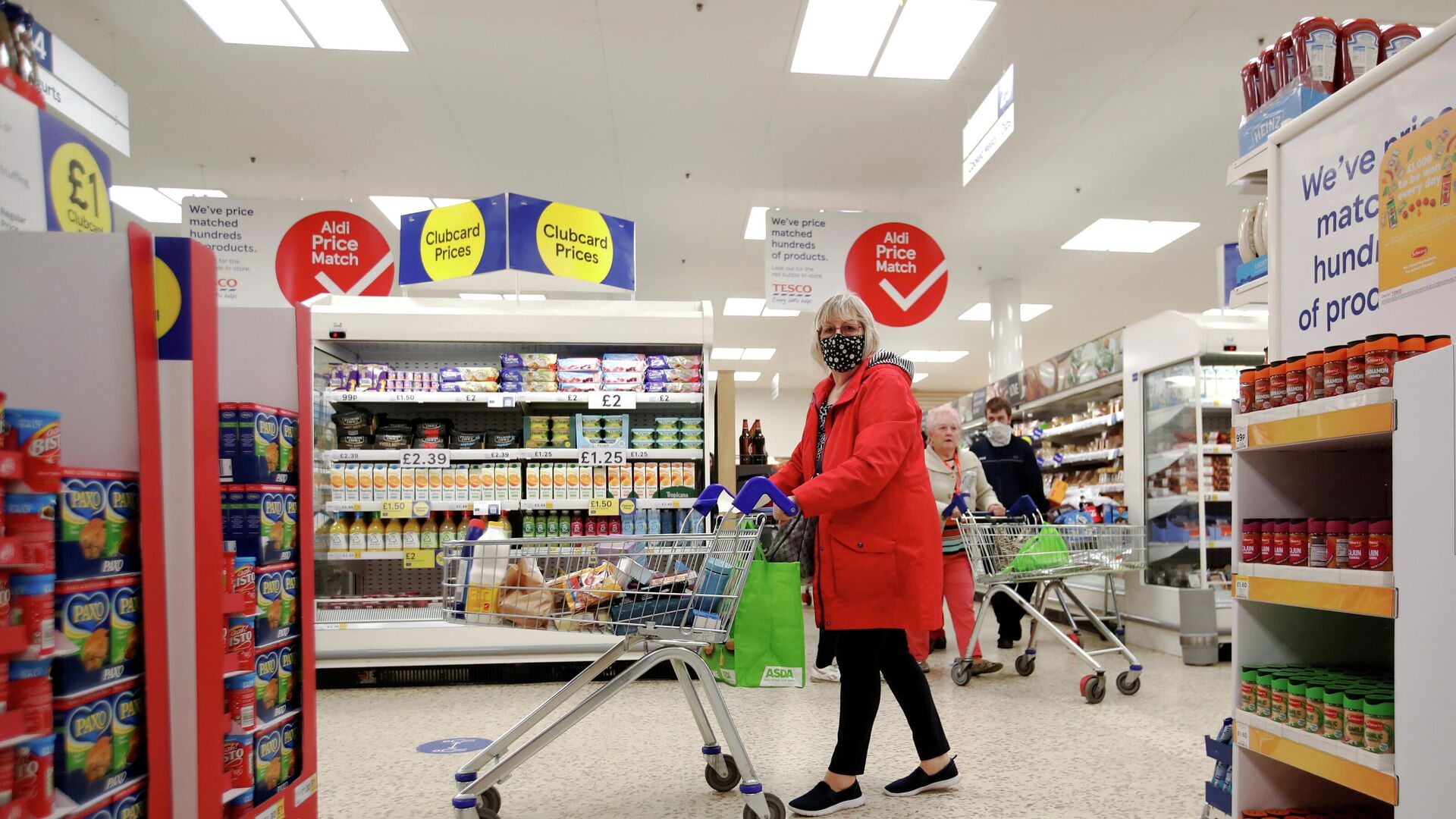UK Inflation Jumps to Highest Rate in Nine Years as Pandemic Bottleneck Hits Food And Petrol Prices
09:44 GMT 15.09.2021 (Updated: 15:15 GMT 28.05.2023)

© REUTERS / Peter Cziborra / A woman in a UK supermarket
Subscribe
The British economy - like that of much of the rest of the world - came to a shuddering halt when the COVID-19 pandemic struck in March 2020. The pandemic has led to rising food prices and there have also been inflationary pressures on wages.
Britain's annual inflation rate rose by 3.2 percent - the biggest rise since 2012 and a sign that food, petrol and energy prices are in danger of overheating the economy.
The Office for National Statistics said consumer prices were up two percent since July and the annual rise was the biggest since March 2012.
Higher oil prices, shipping problems and shortages of components for cars and other goods have contributed to rising inflation in many countries around the world.
Uh-oh - UK inflation leapt 3.2%, highest jump since records started in 1997, just as the Govt cuts £20 UC for 6m poorer households and plans to raise NI for 25m+ workers
— Kevin Maguire (@Kevin_Maguire) September 15, 2021
Last month euro zone inflation hit three percent, a 10-year high.
The UK figures may also have been bumped from the UK government's Eat Out to Help Out scheme, which offered diners a discount on meals in August 2020 in a bid to hit the hard-hit hospitality industry.
The UK figures may also have been bumped from the UK government's Eat Out to Help Out scheme, which offered diners a discount on meals in August 2020 in a bid to hit the hard-hit hospitality industry.
The Bank of England predicts inflation will hit four percent later this year and is blaming higher energy prices and pandemic bottlenecks.
However much central banks downplay inflation, it is rising fast and here to stay. This is how government reduces its vast debts and we pay the price.
— Nigel Farage (@Nigel_Farage) September 15, 2021
The price of second-hand cars has also gone up - by more than 18 percent since April - due to a shortage of new models.
Jack Leslie, a senior economist at the Resolution Foundation, told Reuters the inflationary pressures were “largely transitory”, noting that there “is little policy makers can do to stem this cost of living crunch.”
